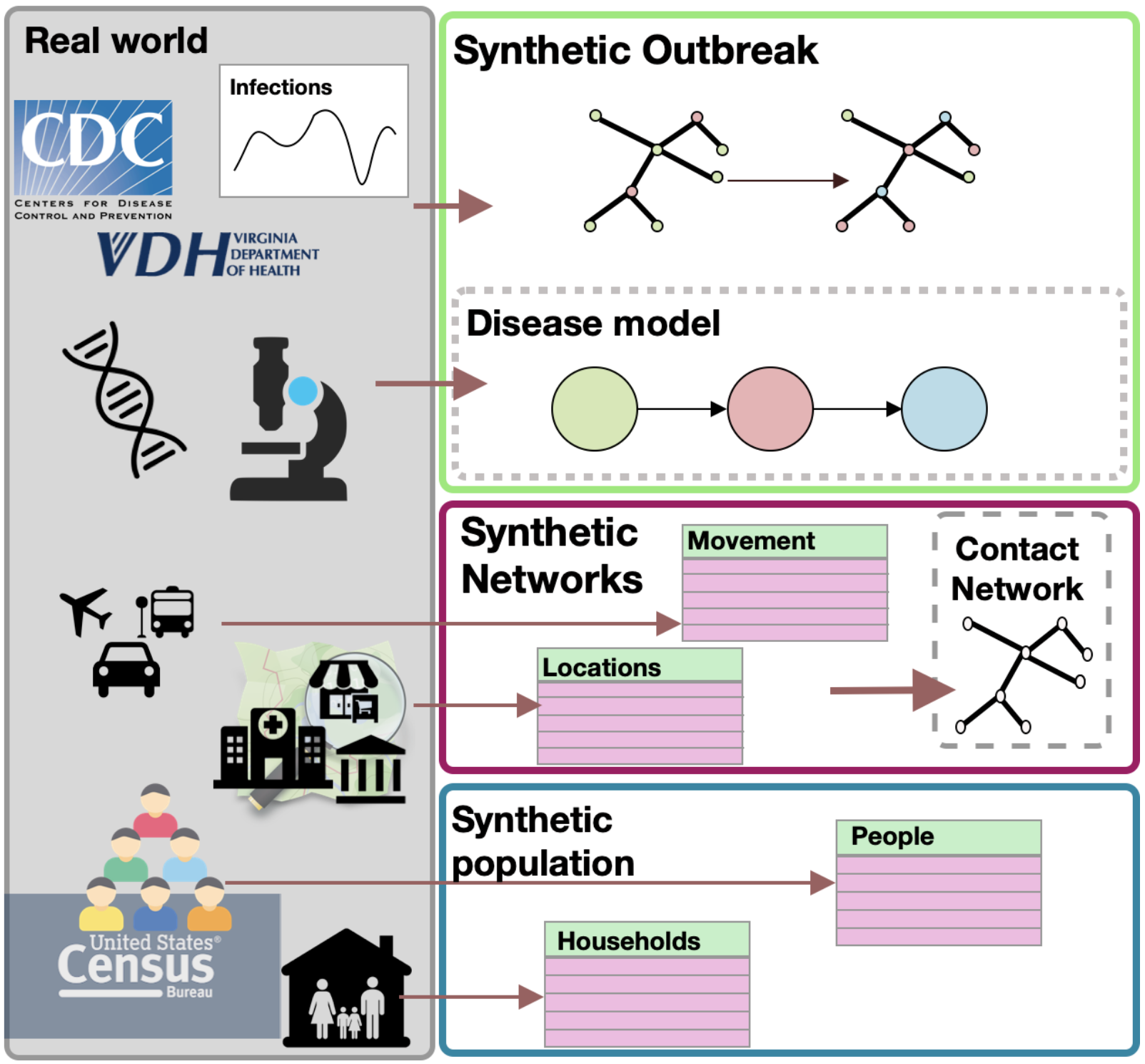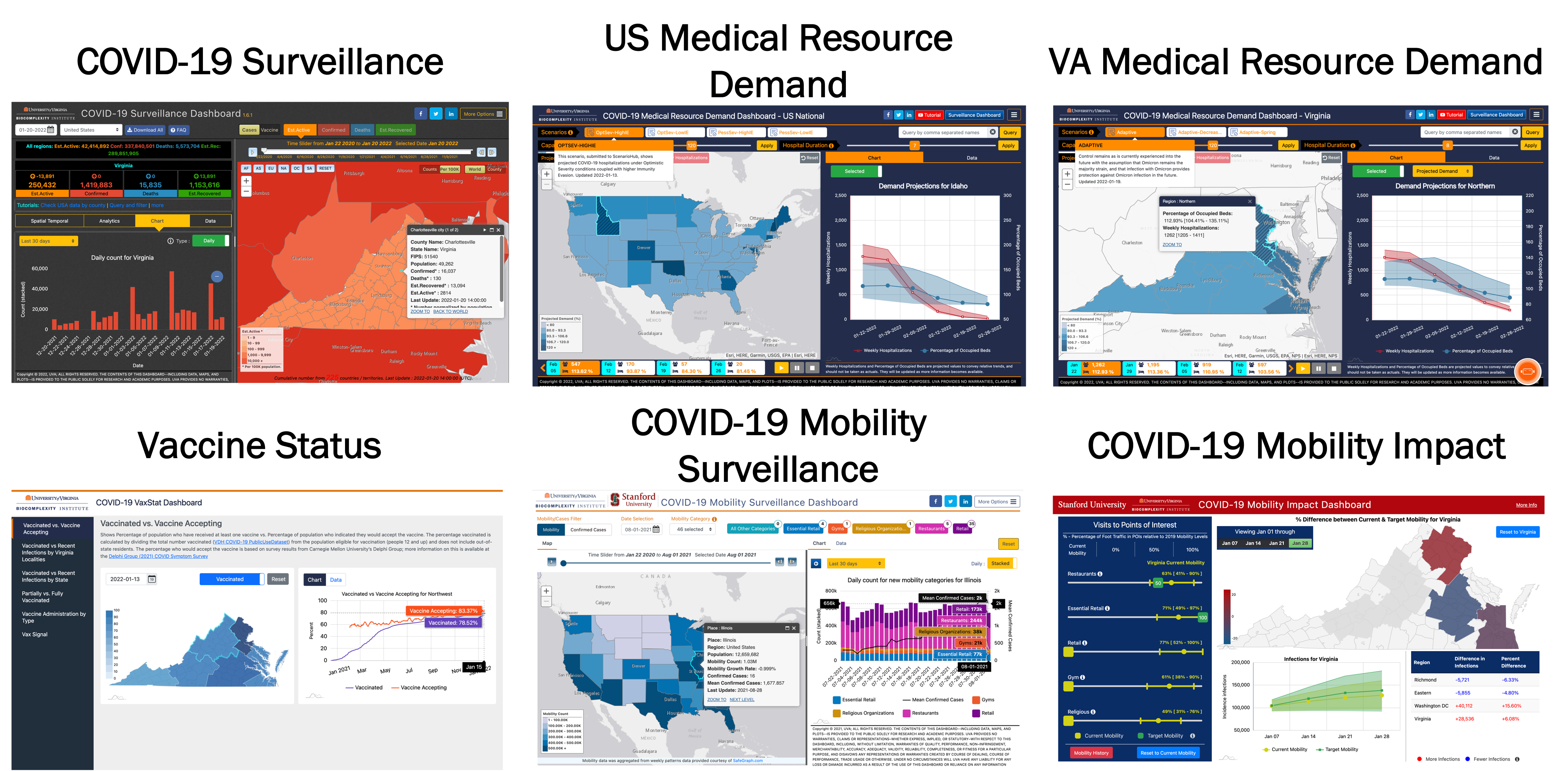NSSAC Research
Supporting Collaborative Research
 Accelerating the adoption and development of privacy-enhancing technologies (PETs): Forecasting to bolster pandemic response capabilities
Accelerating the adoption and development of privacy-enhancing technologies (PETs): Forecasting to bolster pandemic response capabilities
The COVID-19 pandemic has emphasized the need for a more robust disease surveillance infrastructure. However, the development of such an infrastructure runs into a double-bind. Assurances of privacy require adversarial testing against realistic systems. Likewise, it is difficult to build realistic systems without access to data. To get around this problem, we created synthetic datasets that reflect a realistic disease outbreak. This data was used as a component in the UK-US Prize Challenge on Privacy-Enhancing Technologies. In the challenge, participants were tasked with creating personalized risk forecasts of infection in a privacy-preserving manner. The challenge was put on by the U.K.’s Center for Data Ethics and Innovation (CDEI) and Innovate UK, as well as by the U.S. National Institutes of Standards and Technology (NIST), and the National Science Foundation (NSF) in cooperation with the White House Office of Science and Technology Policy (OSTP). The winners of the US and UK challenges were announced on March 30, 2023, at the Summit for Democracy. The winning teams can be found here, and profiles of the teams can be found here.
Learn more on our NSF-funded PREPARE Virtual Organization page here.
—-
As SARS-CoV2 rapidly spread across the world, we were ready to serve as a resource for local, state, and federal pandemic response efforts. You’ll find our current pandemic-related publications here.


We have developed several decision support tools and dashboards to help healthcare providers and the general public to better evaluate the status of the epidemic. We have curated data from multiple sources to support these dashboards; these collated datasets can be used to extend global and detailed perspectives of the confirmed cases. You can see all of our dashboards here.
Additionally, we use several modeling platforms to account for various levels of complexity in our modeling efforts. You can learn more about these platforms here.
We are very excited to provide real-time pandemic response resources for policymakers at all levels of government.

For more on why modeling is a useful tool for epidemic research, see this article.